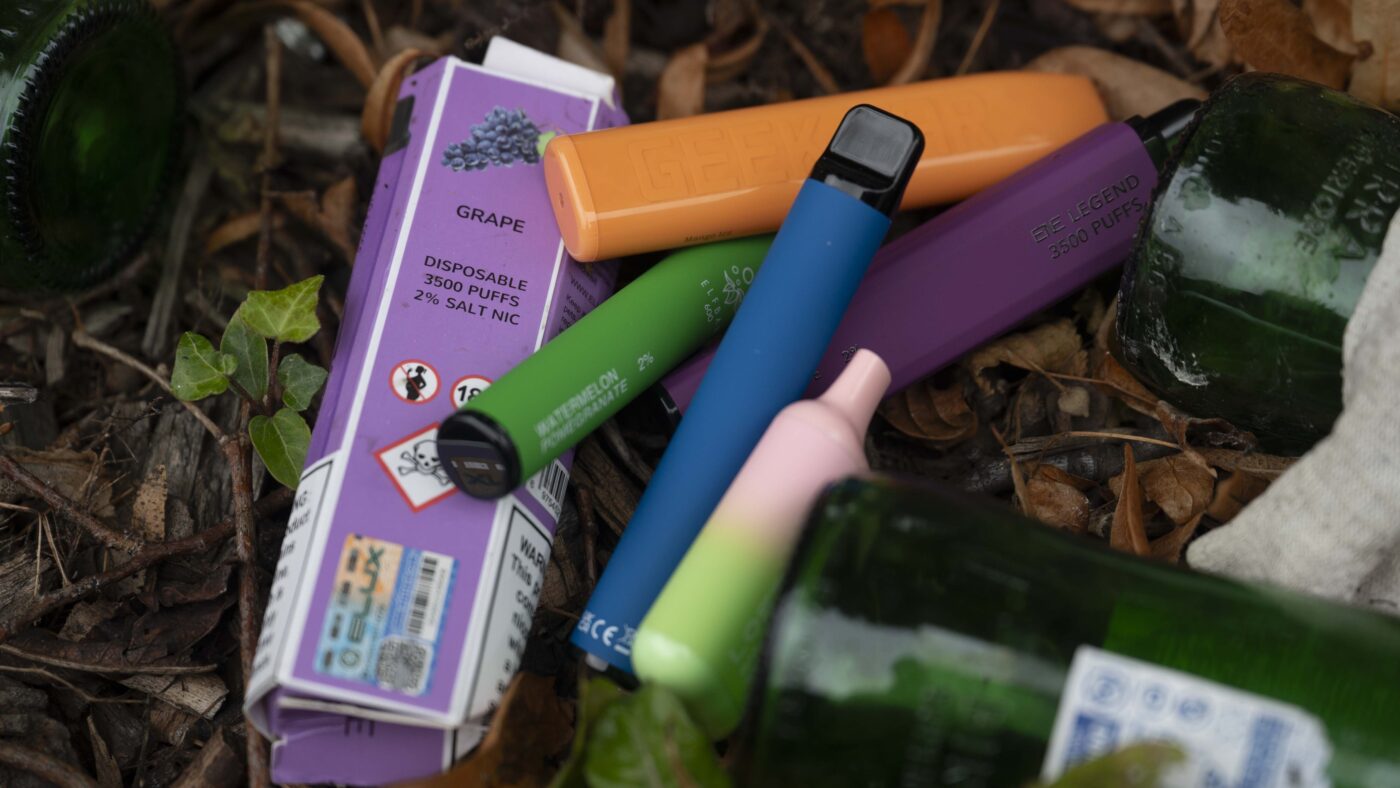Under the guise of environmental concern and children’s health, the Local Government Association has put forward the idea of banning single-use vapes. Despite their garish colours and enticing flavours, these products are crucial to the Government’s strategy to make the UK (where less than 5% of the population smoke) smoke free by 2030.
While concerns about our kids should not be dismissed – the real policy question is about littering and how to best limit it.
So, what are the complaints of local councils and environmental groups such as the RSPCA? Lithium-ion batteries used in vapes can leak when improperly disposed of. Lithium in the soil creates considerable problems due to its highly toxic chemical composition, leaking into groundwater, rivers, and eventually making its way into the food chain. Improper disposal is the key here – a total ban on single-use vapes is like using a sledgehammer to crack a nut.
A deposit return scheme, potentially funded by the vaping industry, could work well and similar initiatives have already proved successful across Europe. Currently, only 17% of users recycle their vapes correctly, and if they were offered say, 10p per vape deposited, it would keep consumers incentivised to recycle and lessen the environmental pollution caused by littering. If the government is serious about balancing its public health and environmental concerns, then this would be a policy to consider.
Cigarette butts are made of plastic and take 15 years to decompose, and the number of these butts dropped on Britain’s streets has been falling due to the rapidly declining number of smokers. The drop in cigarette smokers can be attributed to vaping and the prevalence of single use vapes, which act as a gateway away from smoking and then on to more sustainable refillable vapes. A ban on single-use vapes, in that case, could result in the number of smokers starting to rise and a corresponding increase in cigarette butt pollution, leading to more plastic on our streets, fields, and water.
Private sector solutions to vape disposal have emerged, but have been slow to take real effect. Battery disposal or trade in schemes are prevalent in most supermarkets and vape shops, but not at corner stores, where a large number of single-use vapes are bought. These can often be inconvenient, requiring owners to store used vapes and mail them back, or carry a collection of them to a participating shop. It is working, but taking longer than expected. So, the council should step in with a simple solution, and add small vape disposal boxes to bins in the streets and fields.
Currently, bins usually come with a cigarette disposal grate, located on the top or on the side, which have been effective in reducing pollution from cigarettes – yet there has been no initiative on the side of councils to approach vaping in the same spirit. Offering greater convenience to consumers could reduce pollution and enable a more effective process of recycling the battery components. All of this, for the cost of a small box on every bin, and a moment extra of the waste disposal person’s time to empty the contents into another bag. It is a win-win for all parties involved.
Just two innovative schemes could solve the problems of disposable vape pollution whilst also encouraging better public health. With disposable vapes offering a clear runway for smokers to quit, it is time local and central government gave up on prohibition and started treating consumers and companies like adults.
Click here to subscribe to our daily briefing – the best pieces from CapX and across the web.
CapX depends on the generosity of its readers. If you value what we do, please consider making a donation.


